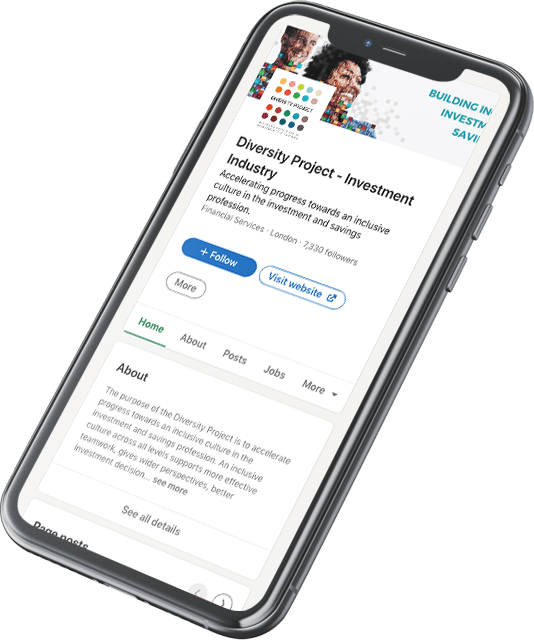Back in the early 2000s, I was working as a lead investment consultant for what was then Watsons. I had a portfolio of large institutional clients that I advised. I also had two young daughters and was juggling work and family life. I saw myself as an investment expert having worked in the industry for 20 years at that point. But the investment world was changing and becoming more complex.
Liability-driven investment was on the rise along with the increasing use of derivatives. I was a non-actuary working in an actuarial firm and I was beginning to doubt my expertise. My career had stalled as well – I hadn’t been promoted for a long time and it didn’t look as though I was going to make it to the next level – main partner – and I didn’t really know why.
The final straw was when one of my clients decided to retender their investment consulting contract – and I lost the re-pitch. The key individual at the client was new and had his own ideas about the kind of advice he was looking for and he brought in his previous advisers.
This situation triggered some really negative emotions and thinking. I thought I was a rubbish mother because I was out-sourcing much of the day-to-day childcare, I was a terrible consultant – an imposter – because I didn’t have the LDI or derivatives expertise and I felt like I wasn’t valued because I wasn’t being considered for promotion. I lost my confidence, I was angry and I was anxious.
My boss at the time described me as prickly and I was tearful and angry at home and I blamed other people for my plight. I wasn’t sleeping well and that exacerbated the situation
Interestingly, it never occurred to me to mention any of this to my boss or my colleagues. And this isn’t meant to be a criticism of my former employer at all; I chose not to share my feelings with anyone at work. But nor did I observe anyone at my company sharing their mental health issues; all I saw was highly successful people managing perfectly well.
How I learned to manage my anxiety
Luckily I spotted that all was not right and went to see my GP who referred me to a psychiatrist who diagnosed anxiety and suggested cognitive behavioural therapy. My CBT therapist explained the negative cycle of thoughts, feelings and behaviours.
We discussed my habit of catastrophizing, my black and white thinking and my perfectionism. He helped me to start to recognise my negative thoughts and to question their validity. The reality is that my daughters were thriving, my other clients valued my advice and while I wasn’t getting promoted, I was still receiving good reviews at work. And I didn’t need to be an LDI expert to continue to support my clients; I had plenty of colleagues with those skills that I could involve.
The result was that after 3 months of CBT – weekly hourly sessions plus homework – I was in a much better place. I felt better about myself and about other people as well.
How I stay well
I am still inclined to worry, to catastrophise and to ruminate about things that have gone wrong. I am better at recognising these behaviours and questioning the thoughts before they become a real problem. And there are some practical steps I have taken to ensure that I stay well.
I have taken up yoga and more recently running – this helps with my physical health which links into mental health. I have used mindfulness as well to help and have found meditation to be a great way to stop the negative thinking and be kinder to myself.
I have also found time for the things I really enjoy including lots of walking and travel (when that was allowed). What has also helped has becoming more aware of how common these issues are.
By reading about how common imposter syndrome is, for example, I have realised that selfdoubt is very common. I have also learned to give myself a break and accepted that perfectionism is a ridiculous expectation. But that doesn’t mean that I shouldn’t learn from my mistakes and figure out how to do things better next time. Treating myself like I would coach a friend or colleague seems to have better results than pointless negative rumination.
So developing more of a growth mindset – one that seeks feedback and persists even when there are setbacks has been really valuable for me. A couple of other tools that I have found helpful in keeping me positive and learning has been journaling and keeping a gratitude diary. I have found journaling particularly helpful for documenting situations that have occurred and then reflecting on them and how I might do things differently next time.
I have found that writing things down allows me to be a bit more dispassionate about the situation and more ready to accept my responsibility and take action. Keeping a gratitude diary is a way of remembering the lovely things that happen during the day and keeping me in a positive frame of mind. It might be something I have seen on my daily exercise or it could be a great conversation I had with someone – by recording them I find that I can stay in a positive place and not be dragged down by all the negativity in the world.
What advice would I give to others who are experiencing anxiety?
I would suggest seeking expert help – your GP or your Employee Assistance provider should be able to help. Don’t suffer alone. If your firm has Mental Health First Aiders, they can provide a lot of useful support as well.
For further mental health resources, visit the Diversity Projects’ mental health page




